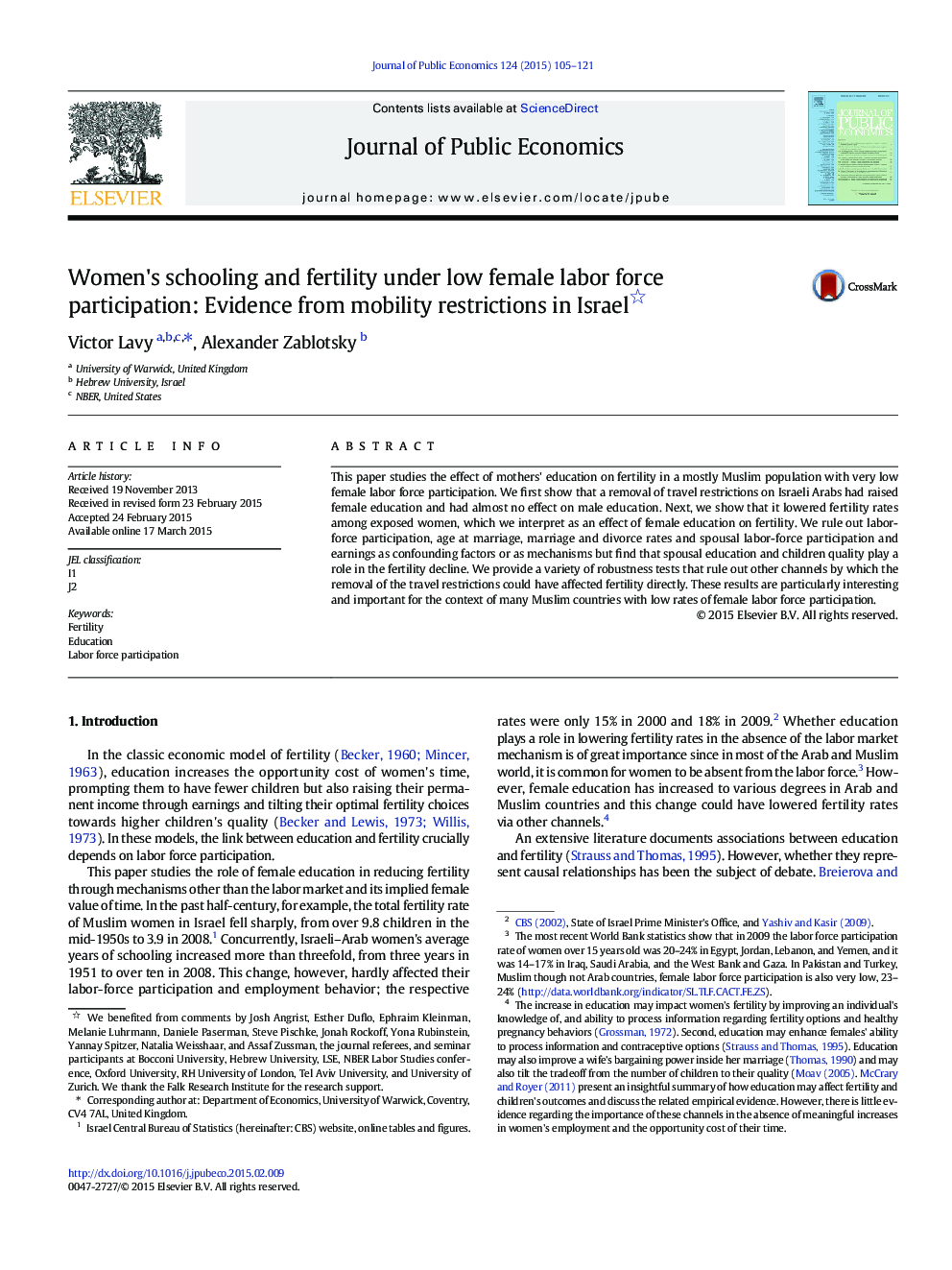| Article ID | Journal | Published Year | Pages | File Type |
|---|---|---|---|---|
| 968791 | Journal of Public Economics | 2015 | 17 Pages |
•We study the effect of mothers’ education on fertility for Muslim women with low female labor force participation.•We show that an increase in female education led to decline in fertility without change in labor-force participation.•We find that spousal education and children quality played a role in the fertility decline.
This paper studies the effect of mothers' education on fertility in a mostly Muslim population with very low female labor force participation. We first show that a removal of travel restrictions on Israeli Arabs had raised female education and had almost no effect on male education. Next, we show that it lowered fertility rates among exposed women, which we interpret as an effect of female education on fertility. We rule out labor-force participation, age at marriage, marriage and divorce rates and spousal labor-force participation and earnings as confounding factors or as mechanisms but find that spousal education and children quality play a role in the fertility decline. We provide a variety of robustness tests that rule out other channels by which the removal of the travel restrictions could have affected fertility directly. These results are particularly interesting and important for the context of many Muslim countries with low rates of female labor force participation.
